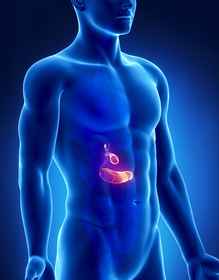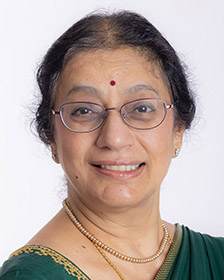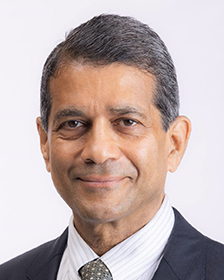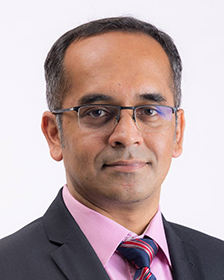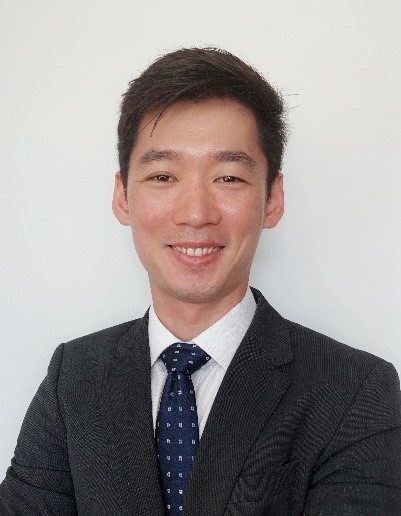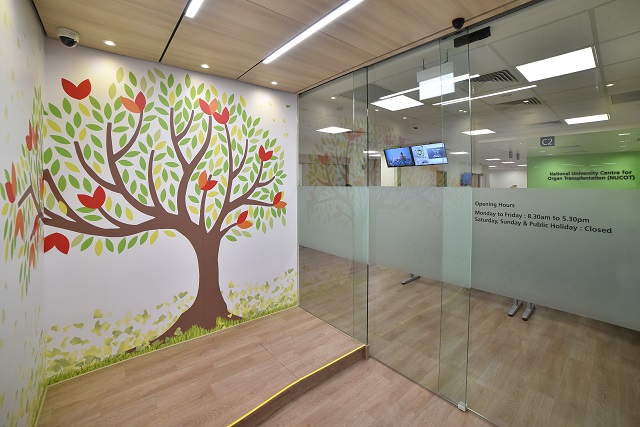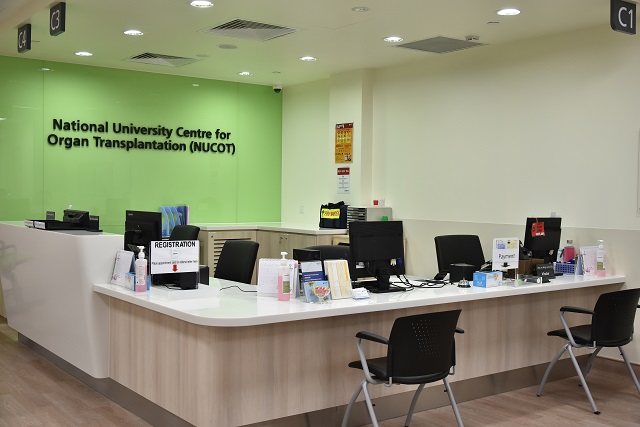- How long will it take for me to recover after the surgery?
- What happens after discharge?
- What do I need to take note of after the surgery?
- What are the side effects of the anti-rejection medication?
- What are the signs and symptoms of pancreas and/or kidney rejection?
- What if my body rejects my new pancreas and/or kidney?
1. How long will it take for me to recover after the surgery?
After the surgery, you will be in the High Dependency Unit for a few days so that you can be monitored closely. The transplanted pancreas may not work immediately after the operation, therefore insulin injections will be continued for a period of time.
Once your condition stabilises, you will be transferred to a normal ward to recuperate for about a week. There will be soreness or pain around the surgery site.
Back to top
2. What happens after discharge?
Your transplant team will develop a check-up schedule for you as close monitoring is needed for the next one month. It is important that you keep to your regularly scheduled appointments.
You will need the take the anti-rejection medications for life to help prevent your body from rejecting the new organs. Without proper levels of these immunosuppressants, the pancreas and kidney will be rejected and you will once again need to inject insulin to control your blood sugars or to start dialysis for treatment of the kidney failure. During the check-ups, the transplant team will assess if your newly transplant organs are functioning well and adjust your immunosuppressive medicines as needed.
Back to top
3. What do I need to take note of after the surgery?
Mental Health
It is normal to have a mix of emotions as a transplant is a major life change. There could be several reasons, such as mood changes due to the immunosuppressants or feeling stressed about your new lifestyle. You are not alone.
Let your transplant team know how you are feeling so that they can help to support you and adjust your medicine if needed. They may also refer you to a psychologist.
Diet and nutrition
Maintaining a healthy diet and exercising regularly can help to prevent some common post-transplant complications such as heart attacks. It will also help to keep your pancreas and kidney healthy.
Your transplant team will refer you to a dietitian who will work around your nutrition and dietary needs and recommend you foods for your nutrition plan. You can also discuss with the dietitian if you have any questions.
Exercise
You can explore walking, jogging, cycling, swimming and other low-impact physical activities. Check in with your transplant team if you want to start or change your post-transplant exercise routine.
Travel
It is important to have recovered fully before you travel overseas. Your transplant team may recommend that you wait between two and twelve months after your surgery before you travel. You will need to have enough immunosuppressants for your overseas trip. Let your transplant team know your travel plans as you may need to take vaccines or avoid certain foods depending on your destination.
Driving
It is recommended to wait for at least two weeks after your transplant before you start driving. Some of the medications you need to take right after the surgery may cause tremors and vision changes. It will be safer to have company in your ride when you start driving again.
Sex Life and Pregnancy Plans
Avoid having sex for four to six weeks after your transplant until your surgery site has healed to prevent the wound from opening again.
For females, your menstrual period may become more regular after the transplant. This means that you will more likely to become pregnant. It is recommended to wait one year after your transplant before getting pregnant. Check in with your doctor to find out which birth control method will be more suitable for you.
Back to top
4. What are the side effects of the anti-rejection medication?
The side effects may include:
- Osteoporosis
- High cholesterol
- High blood pressure
- Nausea
- Diarrhoea
- Sensitivity to sunlight
- Weight gain
- Swollen gums
- Acne
- Excessive hair growth or hair loss
- Cataracts
Back to top
5. What are the signs and symptoms of pancreas and/or kidney rejection?
Signs and symptoms that your body may be rejecting your new pancreas include:
- Fever of more than 38oC
- Excessive tenderness at the surgery site
- Vomiting episodes
- Decreased urination
- Increased blood sugar levels
- Pain at the stomach area
Signs and symptoms that your body may be rejecting your new kidney include:
- Fever of more than 38oC
- Unexplained weight gain
- Ankle swelling
- Very high blood pressure
- Flu symptoms such as body aches, headaches and chills
- Less urination
- Excessive tenderness at the surgery site
- Extreme tiredness
Inform your transplant team immediately if you experience any of these symptoms.
Back to top
6. What if my body rejects my new pancreas and/or kidney?
Pancreas
It is not unusual if your body rejects the new pancreas within the first few months of your transplant. Your transplant team will put you under intensive anti-rejection medications for treatment.
Kidney
There are two types of kidney rejection that may happen after your surgery:
- Acute Rejection
This happens usually within three to six months after your transplant. The acute rejection episodes mean that the body is fighting the new kidney. Less than 5% of transplant patients will have an acute rejection episode which causes a complete failure of the new kidney. - Chronic Rejection
This is more common and usually occurs slowly over the years. Your new kidney may stop working because your immune system is constantly fighting it.
Having a rejection episode does not mean that your new kidney is not working or will be completely rejected. You will need to talk to your doctor about the episode(s) and they will change the amount of your immunosuppressive medications you need to take. It is extremely important to follow your prescription to prevent kidney rejection.
Back to top

